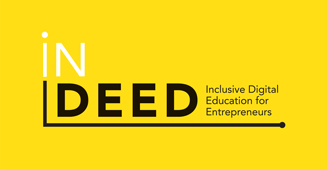Start with user needs – not our own
Tailor support around the unique barriers that stop people from going online, and adapt to people’s needs which change over time
Throwing money at the problem and offering generic support does not help people go online in the long term. People need tailored support to help them overcome their barriers; whether that’s around access, cost, confidence, or skills. Services need to be built for the user, not for government or business – putting their changing needs first.
Improve access – stop making things difficult
Provide simple, low-cost options for those who are socially and economically excluded to get online
Going online can be confusing, difficult, and costly. It isn’t just about buying a laptop or smartphone; subscription fees, connection charges, setting up online accounts, and installing firewalls can all make for a challenging experience.
Some people in the UK do not yet have access to broadband where they live even if they want to go online. The most digitally excluded are often the most socially and economically excluded and could benefit the most from going online. Making the practical steps of going online easy and affordable makes a huge difference to people who are new to the internet.
Motivate people – find something they care about
Bring digital into people’s lives in a way that benefits them; helping them do things they care about and can only do online
Pushing people to do something that doesn’t interest them doesn’t work. Let’s face it, doing government transactions online is not the most inspirational digital activity and is unlikely to be the motivator that gets someone to go online. In contrast, keeping in touch with your grandchildren who live abroad might be. Nobody wants to learn digital skills for the sake of it and having an internet connection is useless unless you have a reason to want to use it.
Keep it safe – build trust
Make it easier to stay safe online by providing simple advice and tools
Going online can be a daunting experience for many as they open themselves up to new risks. To keep people online in the long term it’s vital that they can rely on trusted sources to get the help, support, and assurance they need to build their confidence in a digital world. The internet will never be 100% secure and staying safe online needs to be a basic digital literacy skill. Not enough people know how to look after themselves and others securely and not enough people trust the internet in the first place.
Work with others – don’t do it alone
Work together to maximise expertise, experience, and resources to better meet user needs
Services to help people go online are not joined up enough. Efforts are duplicated across providers; funding is sporadic and does not always align with users’ needs. Better links and coordination are needed between the public, private and voluntary sectors so that their efforts add up to more than the sum of their parts.
Focus on wider outcomes – measure performance
Identify wider outcomes that can be delivered by helping people become independently confident online and use data to understand what works
Reducing digital exclusion is not about the number of people who simply log on once; how we measure digital inclusion needs to become far better. Equally, being able to go online is not an end, but it does offer one way to help improve wider social and economic outcomes like improved health, employment, or reduced re-offending and loneliness.
Identifying and prioritising against wider outcomes, agreeing on common measures, evaluating, and testing what works, as well as iterating and making things better, are critical to realising the benefits of going digital and achieving maximum impact for minimum resources.
